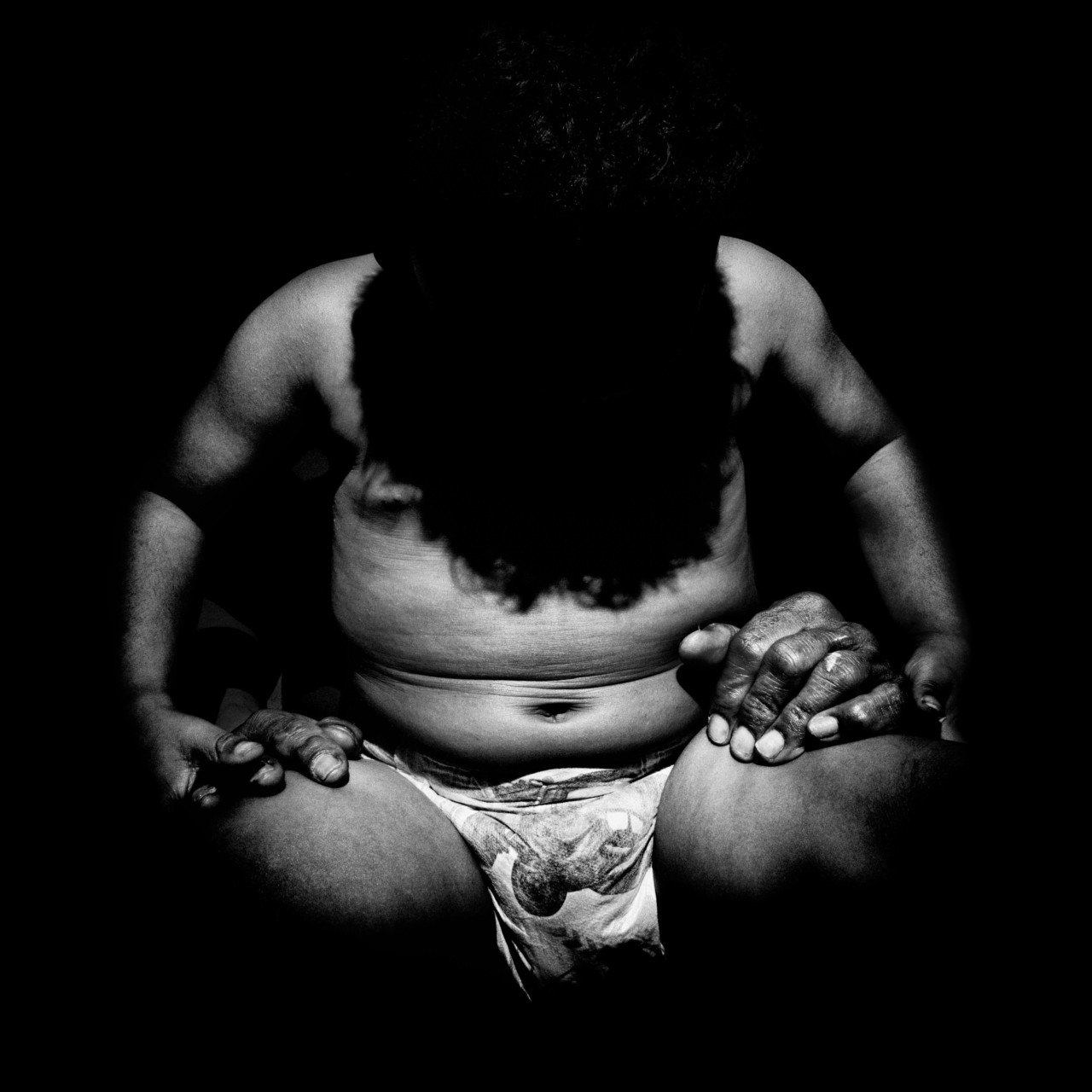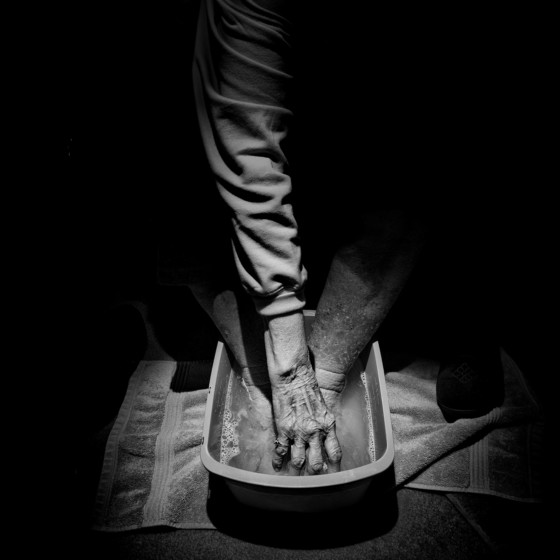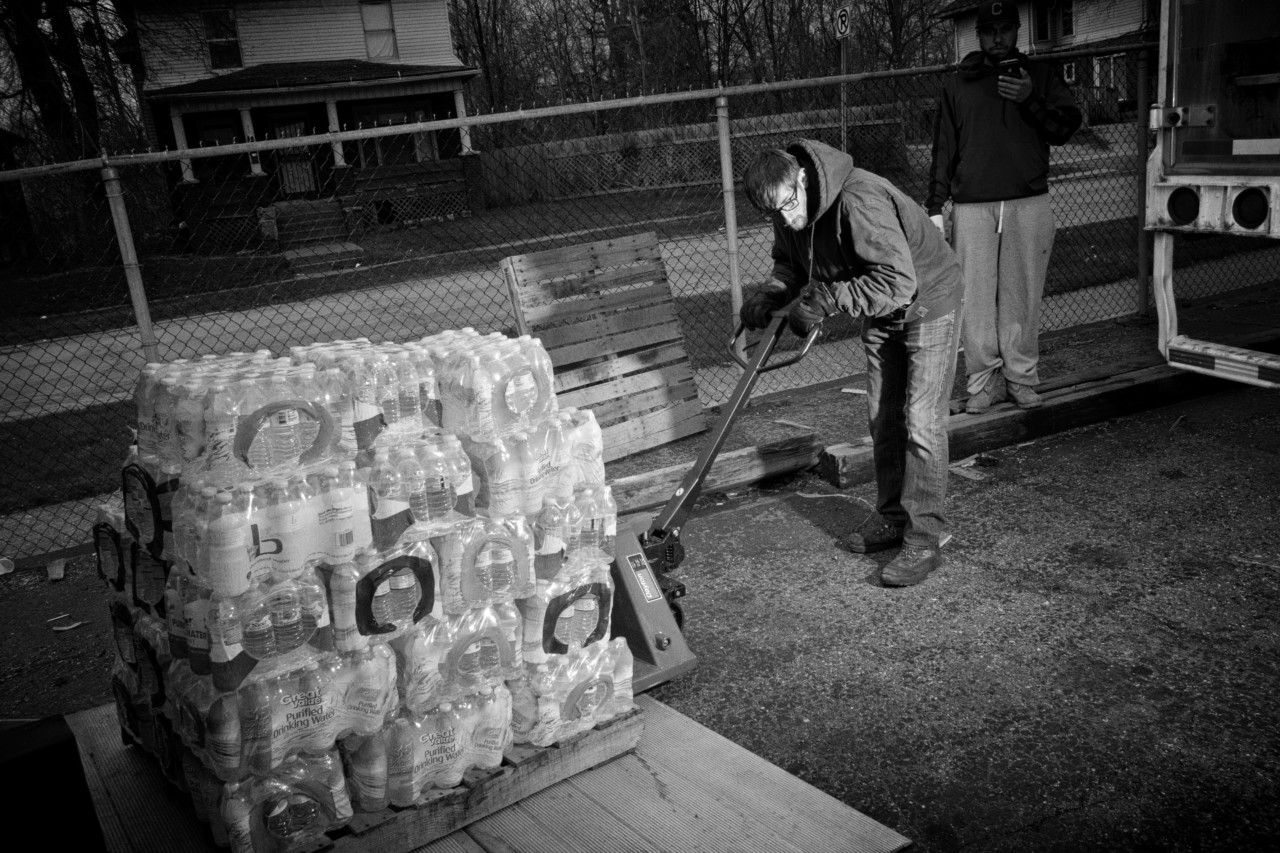The Fall of Flint
Matt Black captures the suffering of America’s poorest and most vulnerable people affected by the criminal neglect of Flint’s water supply.
This article was published in 2016.
Once a thriving industrial city of nearly a quarter million people, with most residents’ employment tied in some way to automobile manufacturing, Flint, Michigan’s population has dwindled to less than 100,000 in the aftermath of auto plant closures during the 1980s. The city has demolished over 5,000 abandoned houses in the last decade. Today, not one grocery store exists within the city.
The hometown of General Motors, Flint is today one of the nation’s poorest places, with a poverty rate of over 40% and some of the highest crime and murder rates in the United States. Crippled by debt and declining revenues, the city switched from sharing Detroit’s water system to drawing its water from the Flint River, but then neglected to treat the water properly or refurbish the city’s aging network of decaying pipes.
Painful rashes, hair loss, lead poisoning, and at least 91 cases of Legionnaires’ disease have been reported to date. The youngest of Flint are showing signs of lead toxicity, which can have long-term effects on learning and behavior, and 12 deaths have been attributed to Legionnaires’ so far. Organizations and individuals have donated and distributed thousands of gallons of bottled water, but residents still struggle to cook, clean, and keep themselves and their children healthy.
Magnum photographer Matt Black took intimate portraits at the homes of some of these residents. One resident, the 86 year-old Bonnie Hammand moved to Flint in 2004. Two months prior to meeting Black her hair started to fall out and she developed a skin infection on her legs. “The doctor said it’s from bathing in the water,” she said. Tim Monahan, a carpenter, caught Legionnaires’ disease in June 2014. “For all intents and purposes, they are getting away with murder,” he said.
So far, criminal charges have been brought against three officials for their role in the crisis. The charges, which include criminal neglect, official misconduct, and tampering with evidence, came three months after a Federal State of Emergency was declared in Flint. “We still don’t know the end of all this,” said Darnell Ishmel, director of local aid agency Flint H2O. “There are the working poor, and then there are the poor. We are the poor.”
On September 14, 2016 Flint residents asked a federal judge to order home delivery of water as their city continues to struggle with two years of lead-poisoned tap water. The motion for a preliminary injunction was filed in March by Concerned Pastors for Social Action, Flint resident Melissa Mays, the Natural Resources Defense Council, and the American Civil Liberties Union of Michigan. The case was heard Wednesday before Judge David Lawson. “The elderly and others who cannot travel to government-run water distribution sites are not receiving the bottled water deliveries they need,” NRDC senior attorney Dimple Chaudhary said in the statement. “For these residents, large cases of water are simply too heavy to carry for long distances or on and off public buses.”
"You know what my biggest fear is? That people are going to forget about us"
- Deborah Hayma, Flint native
The ACLU said a court order is necessary to ensure the elderly and children get access to safe water: “Without court intervention to ensure that the city and state government deliver bottled water to residents in Flint, children, the elderly and the poor will continue to struggle to find consistent access to clean, safe water,” ACLU legal director Michael Steinberg said.
During the hearing, testimony from Michael Hood, Emergency medical technician, now working full time as volunteer for Crossing Water, crisis relief in Flint, who fit filters into homes and also sometimes provide clothes and other items people need. He explained that there are several issues in helping the most vulnerable residents filter their water: a 35-37% illiteracy rate means many residents can’t read instructions. Some residents don’t speak English, some have cognitive issues, and some never been offered a filter. He also reported that many Flint residents don’t have TVs or phones to get information either.
Matt Black’s photo essay captures an eerily empty town with an abandoned feel. It came as no surprise when Flint native Deborah Hayman, told Black, “You know what my biggest fear is? That people are going to forget about us.”























